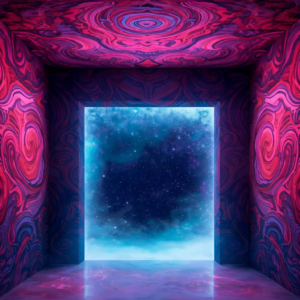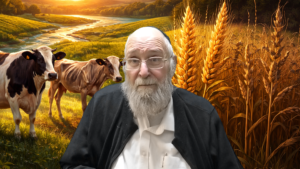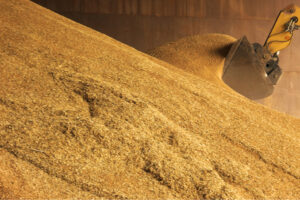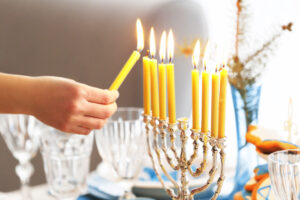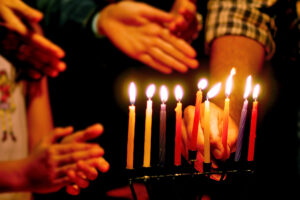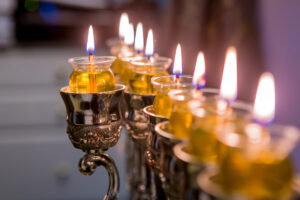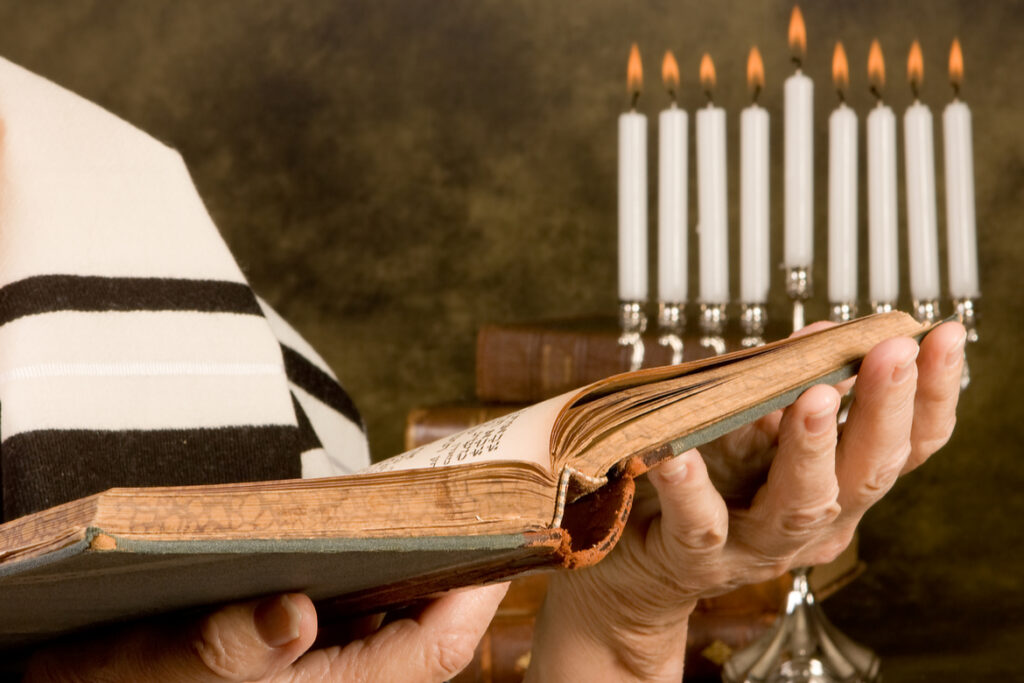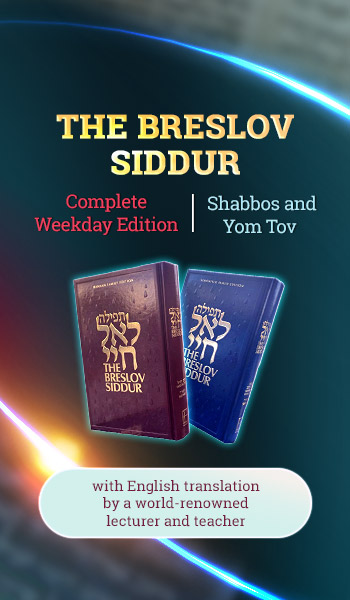- Faith ⬦ Read ⬦ Shabbat ⬦ Weekly Torah Portion
Why Are There Disputes Between the Tzaddikim? – Parshat Vayeishev
There are holy and pure tzaddikim who despite the fact that their intentions are solely l’shem shemayim (for the sake of Heaven), disagree with other tzaddikim who are also holy and pure and whose intentions are also l’shem shemayim. What is the reason for this? And does it concern us in any way? This week’s parsha will address this topic.
This week’s Torah portion is parshat Vayeishev. The Torah recounts Yosef’s dreams and his brother’s hatred for him. Joseph tells his brothers about his dreams: “Behold! We were binding sheaves in the field. My sheaf rose up and stood upright. And your sheaves gathered around and bowed to my sheaf” (Genesis 37:7). The reaction of Joseph’s brothers was: “His brothers said to him, ‘Will you reign over us? Will you actually rule over us?’” (Ibid, 8). Afterwards, Joseph then told them about a second dream, which only increased his brothers’ hatred for him. Anyone who reflects on this story has to wonder what this means. Why did Joseph tell them about his dreams, especially when he knew that they anyway hated him? And what is the meaning and significance of his dreams?
To understand this, first we must understand a little bit about the concept and essence of the role of tzaddikim. There are many holy, sublime, and pure tzaddikim, who are constantly engaged in fulfilling the Will of the Creator, each in his own way, and yet there are many and significant differences between them. Sometimes they live in peace with the other tzaddikim, and sometimes disputes arise between them. What is the reason for this?
Rabbi Natan explains that there are many reasons for the controversy between the tzaddikim, and they are related to the role which each tzaddik takes upon himself. Every tzaddik first of all strives to fulfill the purpose for which he was born. But there are tzaddikim who, in addition to fulfilling the duties they took upon themselves, become guarantors for HaKadosh Baruch Hu, to return the Nation of Israel to Him. As the Midrash teaches, during the Creation of the World, G-d consulted with the souls of the tzaddikim about whether or not to create the world (Bereishis Rabbah 7:8). These tzaddikim accepted upon themselves to be guarantors for the entire Jewish people that they would keep the Torah.
The problematic point regarding the disputes between the tzaddikim is as follows: Even among the tzaddikim themselves, there are those who do not achieve the unique high level of the “True Tzaddik,” whose whole essence is that he is a soul whose only desire is to do only the Will of the Creator. This True Tzaddik takes it upon himself to be a guarantor to the Creator to bring all of Israel back to G-d, and the other tzaddikim envy him. Sometimes it seems to them that the intention of this True Tzaddik is not l’shem shamayim (for the sake of Heaven) and the motive for his actions is the desire for honor, in the aspect of: “His brothers said to him, ‘Will you reign over us? Will you actually rule over us?’” And sometimes they are incapable of understanding his hidden ways.
But there is another and essential point that results in the great difference between the tzaddikim, and it is related to Joseph’s dreams and his brothers arguing against him. There are lofty tzaddikim who have attained very high levels. They have the power to reveal very high spiritual perceptions to those who are anyway on a high level, people who are actually able to overcome their evil inclination. But due to the greatness of their holiness, they are unable to tolerate the lowly souls who struggle with trials, who elevate themselves but then fall and then rally themselves to raise themselves up again, only to fall again as they struggle with their evil inclination. They do not have a remedy or the power to illuminate spiritual perceptions to these lowly souls.
In contrast, there are lofty tzaddikim who have undertaken to return the entire Nation of Israel, without exception, to their heavenly Father. Everything that they do is in order to illuminate the Divine Light to even those lowly souls for whom it is very difficult to reach Divine Enlightenment. They are willing to give up their very lives at any moment for every single Jew, just as Moses did when G-d wanted to annihilate the people of Israel after the Sin of the Golden Calf. Moses said: “If You please, forgive their sin, and if not, then erase my name from Your book which You have written” (Exodus 32:32). Moses said to HaKadosh Baruch Hu: If you wipe out the Nation of Israel, then wipe me out also. Rabbi Nachman spoke out after his son died about the fact that all his troubles stemmed from the fact that he had given over his life to reveal the secrets of the Torah in order to bring the people of Israel closer to G-d. He mentioned what happened to the holy Arizal (Rabbi Isaac Luria) when he revealed a secret of the Torah, and then his little son died. Rebbe Nachman pointed out: “Behold the Arizal only revealed one secret and he was punished, all the more so, that I revealed to you so many secrets like these.” For indeed the tzaddikim give over their lives completely to bringing the people of Israel closer to the Creator.
Sometimes it seems to them that the intention of this True Tzaddik is not l’shem shamayim and the motive for his actions is the desire for honor, in the aspect of: “His brothers said to him, ‘Will you reign over us? Will you actually rule over us?’” And sometimes they are incapable of understanding his hidden ways.
The leadership of these tzaddikim awakens controversy from other tzaddikim who claim that the Divine Light should be constricted so that only those who are fitting will merit to perceive Him and come close to Him. They do not agree with the approach of the tzaddikim who work hard and break themselves all their lives so that anyone who simply wants to experience Divine Enlightenment will merit to this, even if he is unworthy. But it is precisely this point that unites the tzaddikim who work endlessly all their lives to contract the Divine Light and to enclothe it in “simple clothing,” so that even the lower-level souls can attain the Divine Light and draw closer to the Creator. Such a tzaddik endeavors to draw everyone closer. He has the power to illuminate every Jew with the understanding that HaKadosh Baruch Hu desires also his devotion, even if he has sinned terribly. King Solomon alluded to such a tzaddik when he said: “Many women have acquired wealth, but you surpass them all” (Proverbs 31:29).
Now we can understand Joseph’s dreams. The parsha opens with the verse: “Jacob dwelt in the area where his father had stayed…These are the generations of Jacob: Joseph, a young man of seventeen, was tending the flocks with his brothers” (Genesis 37;1-2). The Midrash explains the word “megurei” (dwelling) as being from the word “giuri” (conversion). That is, Jacob was engaged in drawing closer and converting those far from the Shechina, the Divine Presence (Bereishis Rabbah 84:4). Joseph continued Jacob’s mission to draw souls closer to G-d. “And he was a lad with the sons of Bilhah and Zilpah.” The “sons of Bilhah” allude to what is said in the verse “Balahot etneich” (I shall make of you an object of horror) (Ezekiel 26:21). The “sons of Zilpah” allude to what is said in the verse, “Zalapha achaztani marshaiim” (Quaking gripped me because of the wicked men) (Psalms 119:53), referring to those souls that have a hard time dealing with their evil inclination, and this arouses in them balahot (nightmares) and zalaphot (fears) and tempts them. Only the Tzaddik who is the aspect of Joseph is able to find the good in them, connect to them, and bring them closer to G-d, because only Joseph received all his wisdom from his father and knows how to draw these souls closer.

“Behold! We were binding sheaves in the field. My sheaf rose up and stood upright. And your sheaves gathered around and bowed to my sheaf” – Yosef’s dreams
This conduct of Joseph which resulted in bringing everyone closer is what aroused his brother’s hatred. They were not convinced that Joseph was the True Tzaddik who had the power to enlighten every Jew, even the most fallen souls. Even though they were all tzaddikim, there are differences between spiritual levels of the tzaddikim. Also, tzaddikim must nullify themselves to the tzaddikim who are on a higher level than they are, those whose whole desire is to immerse themselves in learning and to bring souls closer to G-d, may He be blessed. That is why the tzaddik was called “Joseph,” as in the verse: “May God add (“yosef”) to me another son” (Genesis 30:24), because his entire life, he yearned only to add more souls to bring them closer to G-d, as the sages taught: “Everyone who teaches his friend’s son Torah, it is as if he is his own child” (Sanhedrin 19b). They strove to teach the children of Israel Torah, and therefore they are considered to them like their sons.
Moreover, the tzaddik himself hints to everyone that all the treasures are by him and that he has the ability to give everyone the opportunity to draw close to G-d. Thus, Joseph related to them his dream in order to reveal this ability to them: “Behold! We were binding sheaves in the field. My sheaf rose up and stood upright. And your sheaves gathered around and bowed to my sheaf” (Genesis 37:7). Joseph informed them that though they were indeed serving G-d faithfully, despite this, their counsel did not have the power to bring everyone closer to G-d. Only Joseph the Tzaddik’s sheaf “rose up and stood upright” and had the power to bring everyone closer to G-d. Unfortunately, the aspect of strict judgement is embodied in these other tzaddikim, which causes them to persecute the tzaddik who has the power to bring the whole world back to its proper order. The other tzaddikim suspect that everything he does stems from his own pride and a lust for honor. “His brothers said to him, ‘Are you going to be the one to reign over us? Will you actually rule over us?’”
And what do these things have to do with us? It is clear that they have not been said in order to differentiate between the different levels of the tzaddikim, since the sons of Jacob were all tzaddikim, as the verse testifies about them: “that the tribes bear the name of the Lord is a testimony regarding Israel” (Psalms 122:4, see Rashi on Numbers 26:5). These things were said in relation to our duty to seek and draw close to the True Tzaddik, the greatest one of all, so that through him we can draw closer to the Creator, as Rabbi Nachman taught a very important basis in serving G-d: “Every person needs to draw close to the greatest Tzaddik who can illuminate him with Divine enlightenment and bring him closer to the Creator, like Moshe Rabbeinu who was willing to give his life for every Jew.” Rabbi Nachman taught: “The more ill the patient is, the greater physician he requires to heal him. Therefore, a person should not say: It is enough for me that I am connected to an honorable and God-fearing man, even though he is not so exalted, because I would be happy if I could achieve even his level. One should not think this way; on the contrary, as much as a person realizes what a low level he is on and how far away he is…he can figure out for himself just how much he needs to search for the very greatest doctor…and he should constantly beg G-d that he should merit to draw close to the very greatest Rebbe” (Likutei Moharan I 30:2).
Perhaps we are the ones who are on the level of the “sons of Bilhah and sons of Zilpah,” the weak souls who are fighting against great spiritual difficulties. But we too still have hope if we succeed in drawing closer to those tzaddikim who have the power to illuminate us and bring us closer to the Creator. All of the tzaddikim are holy, and to that end, we need to pray very much that we will merit this, to draw close to the true tzaddikim and achieve the spiritual attainments for which we were created.
(This article was based on Likutei Halachot, Hashkamat HaBoker 4, Mekach v’Memchar 3, and Shomer Sachar 2.)
- 12 tribesArizalbreslevBreslovbrother's hatredDisputesDivine LightDivine presenceDvar TorahDvar Torah for Parshat Vayeishevemunahfaithfallen fearsfeaturedgolden calfJewishjudaisml’shem shamayimLikutey HalachotLikutey Moharanlowly soulsNation of Israelparshat vayeishevReb NosonRebbe Nachmanspiritual difficultiesteshuvahtrue tzaddikTzaddikimvayeishevyosef and his brothersYosef HatzaddikYosef's dreams
- 0 comment




